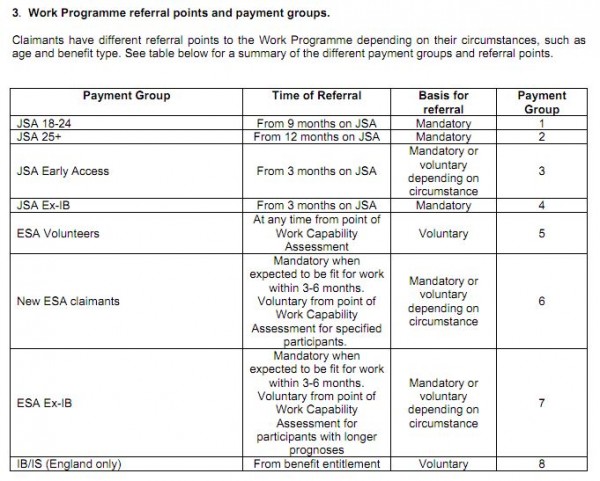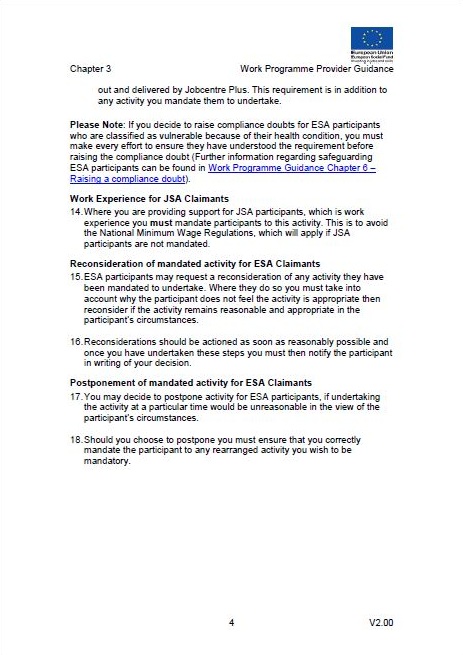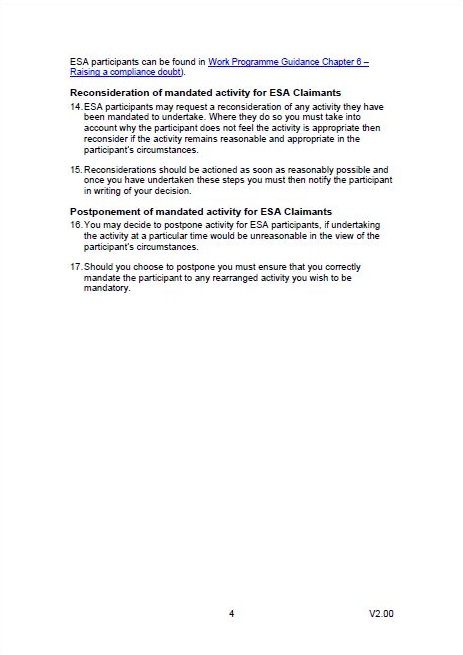The government have been consistently claiming that the Work Experience Scheme and the Work Programme are entirely voluntary, and that only Mandatory Work Activity is compulsory. They were lying, and now we have proof.
I previously pointed out that a DWP document proves that referral to the Work Programme is mandatory in many cases. This image taken from page 7 of the DWP Work Programme Statistical Release states that job seekers aged 18 - 24 will be referred after 9 months, aged 25+ after 12 months, and ESA claimants within 3 - 6 months.
Referral to the Work Programme does not automatically mean being sent to work in an unpaid work placement, but it does give full power over your future to the contracted Work Programme provider company. Thanks to the investigative work of Johnny Void we now have proof from a DWP guide for Work Programme providers that when a provider sends a job seeker to a work placement it is compulsory. Here is an image from the relevant page of the guide.
Paragraph 14 states:
Work Experience for JSA Claimants
14. Where you are providing support for JSA participants, which is work experience you must mandate participants to this activity. This is to avoid the National Minimum Wage Regulations, which will apply if JSA participants are not mandated.
However, if you try to read the original document from the DWP website at this point that isn’t what you see. Instead you will see this page:
The documents has been modified. The original paragraph 14 is gone and paragraph 15 has been relabelled as 14. Also note that the European Social Fund logo has been removed. Despite the changes, the version number of the document, shown at the bottom right corner, is V2.00 in both cases. Credit again goes to Johnny Void for spotting that the document had changed and finding the original document lurking in the Google cache.
You can check the Google cache for the original document at least until it updates to reflect the new one, and you can check the revised version from the DWP website. I have saved copies of both the original and the revised documents here. (My copy of the original was saved as a PDF from the Google cache.)
Work Programme Provider Guidance Chapter 3 (Original)
Work Programme Provider Guidance Chapter 3 (Revised)
Éoin Clarke has also discovered that the DWP have removed the latest version of the Work Programme prospectus from their web site, although the 2010 version is still available. The prospectus has a similar table to that at the top of this article. I have saved a copy of that document here too.
Work Programme Prospectus v2 (2010)
Not only do we have proof that Chris Grayling, Iain Duncan Smith, David Cameron and the DWP were all lying, we also have proof that the DWP silently modified their documents to remove the evidence.
We are at war with Eastasia. We have always been at war with Eastasia.




